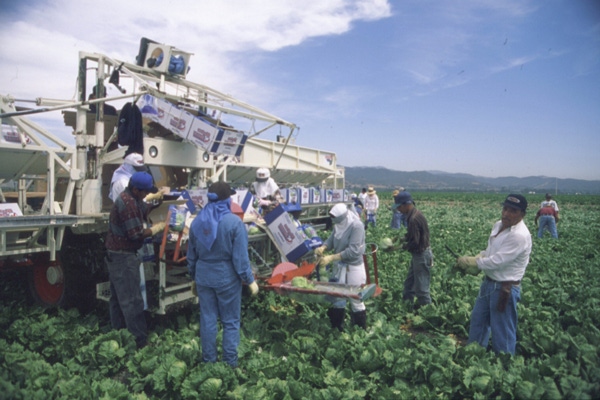July 13, 2011

Changes in certain policies affecting farm labor and improved business strategies are needed to help farmers weather farm labor shortages, says a University of Georgia agricultural economist.
“Policymakers really need to look at the farmers’ perspectives. We need to give them more options,” said Cesar Escalante, an economist with the UGA College of Agricultural and Environmental Sciences.
Long before the controversial Georgia immigration law was even on the table, Escalante was wrapping up a study — funded by a $120,000 Southern Sustainable Agriculture Research & Education, or SARE, grant — to analyze organic and conventional farms’ responses to changes in farm labor market conditions arising from stricter implementation of immigration policies.
The results verify the stories now making headlines: the more labor-intensive organic farms are most vulnerable to changes in farm labor; finding suitable alternative labor among domestic workers is difficult; farmers are relying more on family members to do the work; and changes in the farm labor market may mean significant farm losses.
“The most glaring finding of the study was the greater vulnerability of organic farms compared to conventional farms. They are smaller in acreage, more labor intensive and are incapable or unable to justify making investments in machinery to replace the labor,” Escalante said. “I must clarify that not all farmers will be affected by these farm labor changes. Conventional farms, which are more mechanized or capital-intensive, are probably less stressed in dealing with farm labor issues.”
Escalante conducted a regional survey of organic and conventional fruit and vegetable farms, as well as case studies of organic and conventional fruit and vegetable farms across Georgia that documented their farm labor experiences.
Results of study
Some results from the study included:
• Sixty-seven percent of both conventional and organic farms indicated they have had difficulty hiring workers, with the severity of the problem ranging from periodic to constant. Hiring motivated labor is a common issue.
• Both farm groups in the study expected significant changes to happen in the farm labor market with 50 percent of conventional farmers recognizing a linkage between stricter immigration policies and farm labor supply conditions.
• Family labor has always been the source of reliable farm workers.
• Motivated labor can only be lured into farm employment by offering highly competitive compensation packages, which will erode farm profits.
• However, even an offer of higher wage rates and benefits could not attract workers willing to perform on-farm tasks.
“Nowadays, as one can read in several press releases, we are beginning to realize that foreign farm labor has had some impact on farm productivity and has helped the farm economy,” he said. “There should be ways to legalize their stay while providing farmers the support they require.”
Escalante said that some options include making changes to the H-2A temporary agricultural work program to make it less restrictive to hire workers and more user-friendly for the farmer.
“If a small farmer needs to hire help, the ones we interviewed said they don’t even look at the H-2A program. It’s just too costly for them,” he said. “We have to make it clear to the policymakers what predicaments the small farmer is actually in.”
Another option, said Escalante, is to develop strategies for buying machinery that would offset any labor inputs at the production and harvesting stages. In the study, conventional farmers indicated that their substitution strategies would be to acquire more machinery to reduce labor requirements. Another option for conventional farms was to downsize their operations.
For organic farms, the most popular strategy was production diversification, where farmers change production plans to involve less labor-intensive commodities.
Escalante has developed several UGA Farm and Financial Management bulletins that discuss the survey results. They can be found at www.ces.uga.edu/Agriculture/agecon/pubs/manage.html.
(Candace Pollack is the public relations coordinator for the Southern Region Sustainable Agriculture Research and Education program.)
You May Also Like




